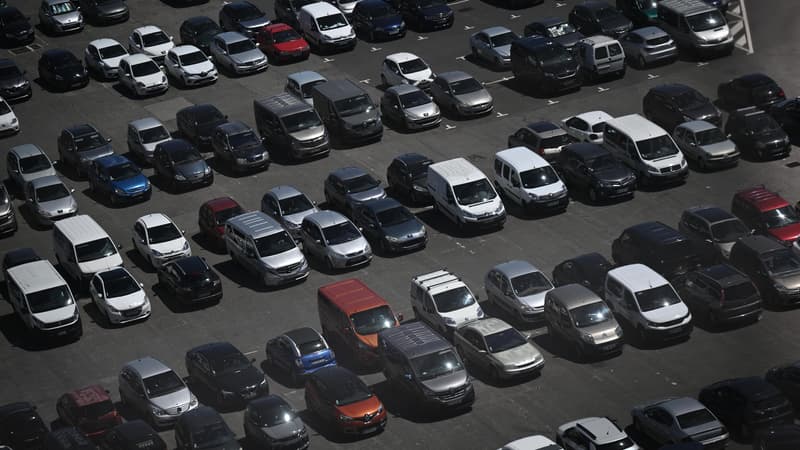After having voted in favor of banning the sale of thermal cars in the European Union in 2035, Brussels dilutes its wine. The proposal for the Euro 7 standard – which aims to limit polluting emissions that are harmful to human health and air quality (but does not refer to CO2 emissions) – does not differ much from the standards currently in force, established 12 years ago.
The text released this morning only very slightly raises the requirements in terms of nitrogen oxide or carbon monoxide emissions for passenger cars. For nitrogen oxide, for example, the Euro 7 project stops the slider at 60 milligrams per kilometer for all light vehicles leaving the factory from July 1, 2025. Today, the threshold is set at 60 milligrams per kilometer. kilometer for gasoline cars and 80 milligrams for diesel models.
Stricter regulations for trucks and buses
On the other hand, the text tightens the rules for trucks and buses. According to calculations by the European Commission, in 2035, the new Euro 7 regulations will reduce nitrogen oxide emissions from heavy-duty vehicles by 56% and their fine particles by 39%.
“Some will criticize the Commission for being too ambitious, others for not being ambitious enough,” Thierry Breton summed up.
“This is proof that we have found the right balance,” added the European Commissioner for the Internal Market.
Dissatisfied industrialists in the sector despite everything
Marc Mortureux, managing director of the Automotive Platform (PFA), an organization that brings together the main players in the French automobile sector, acknowledges for his part that the text released this morning may seem indulgent for the sector at first glance.
“On the screen, the emission limit values do not move much,” he explains.
“Mais la question est de savoir comment on respecte ces valeurs, dans quelles conditions, comment sont réalisés les tests. Tout cela est extrêmement technique et je ne suis pas certain que ce projet Euro 7 soit si favorable au secteur automobile finally”, poursuit- The.
The tone is the same at the European Automobile Manufacturers Association. “The environmental impact of this proposal is very limited, warns Oliver Zipse, president of ACEA and CEO of BMW, “while it considerably increases the cost of cars”.
At what cost to manufacturers and consumers?
To comply with the Euro 7 regulation, which is still far from being adopted, manufacturers will have to adapt their vehicles to the standard.
“It will not cost more than 100 euros extra per car,” said Thierry Breton this morning. This calculation is far from being validated by everyone.
“At the moment it is very difficult to quantify the additional cost of Euro 7,” estimates Marc Mortureux. Some manufacturers are much more alarmist. According to Luca de Meo, CEO of Renault, cars could increase by thousands of euros with this new regulation.
A budget that manufacturers would prefer to allocate to the electrification of their range. The electric did not forget Thierry Breton this morning. During his press conference, the European commissioner insisted on a crucial point according to him: electric cars are also polluting. They are on average 40% heavier than a thermal car and this has consequences for the brakes and tires. The draft Euro 7 regulation aims to limit particulate emissions during braking and microplastics from tires.
highly critical environmentalists
“It is very insufficient. The Commission chooses to preserve the profits of the car industry instead of the health of citizens,” lamented Lucien Mathieu of the NGO Transport & Environment. He denounces the influence of car manufacturing countries such as France, Italy and Germany. A review taken up by Karima Delli. “The lobbying of the car manufacturers has had an effect,” lamented the environmentalist MEP, who foresees “tough and complicated negotiations” on this text. Discussions must now be held with the Member States and the European Parliament.
Source: BFM TV


